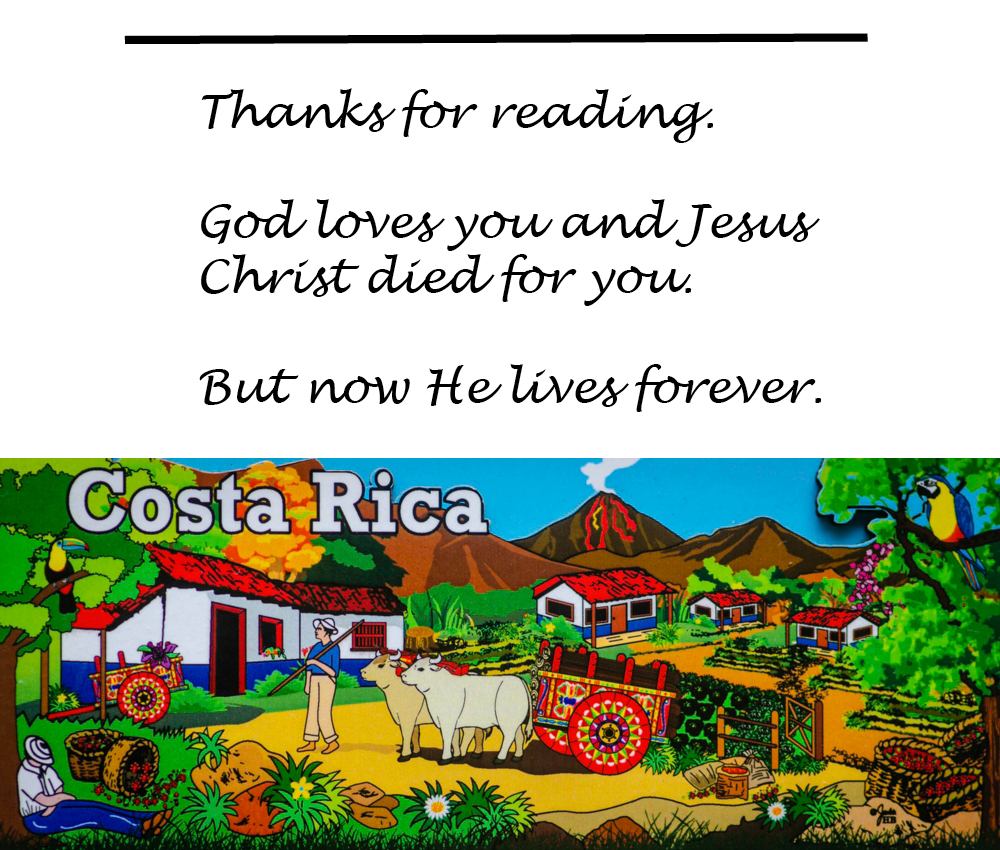The people stood watching, and the rulers even sneered at him. They said, “He saved others; let him save himself if he is God’s Messiah, the Chosen One.”
The soldiers also came up and mocked him. They offered him wine vinegar and said, “If you are the king of the Jews, save yourself.” There was a written notice above him, which read: THIS IS THE KING OF THE JEWS.
One of the criminals who hung there hurled insults at him: “Aren’t you the Messiah? Save yourself and us!”
But the other criminal rebuked him. “Don’t you fear God,” he said, “since you are under the same sentence? We are punished justly, for we are getting what our deeds deserve. But this man has done nothing wrong.”
Then he said, “Jesus, remember me when you come into your kingdom. ” Jesus answered him, “Truly I tell you, today you will be with me in Paradise.”
LUKE 23:35-44
Two outlaws were crucified with Jesus Christ, one on either side of him.
One criminal couldn’t help joining in the mocking of the Messiah – and of God. In his last hours on this earth, he joined his own tormentors against life and light.
The other lawbreaker revolted against his fate in a different way. The Good Thief, as he was called by the nuns who taught me as a child, still had basic human decency. Was he a believer in Jesus? Or were his words of solidarity just an attempt to console an innocent man, so unjustly condemned? As with all of us, only God knows his motives.
The Good Thief was blessed with the two necessary elements for salvation. He showed remorse, acknowledging that his own wrongdoing put him up on his cross. And he appealed to Jesus to save him.
If he really was a bandit, this criminal succeeded in the end. Nailed to a cross, he pulled off the heist of his life – eternal salvation, won in his last minutes alive. As futile as his earthly existence may have been up to that point, it was all turned around at the end. Final victory, in the midst of the chaos and pain of crucifixion.
Contrition for sin is true, heartfelt remorse for damage done by actions or feelings.
Recognizing sin as sin, and being sorry for it, is a gift from God. It’s a narrow gateway back to Him when we have gone astray. To be capable of contrition for sin is to be capable of receiving salvation.
But contrition alone is not enough. Sin causes a barrier between us and God – an unbridgeable chasm between human corruption and divine perfection. If we have moral courage, we will recognize the problem of our own unworthiness before God. And that’s a problem we can’t solve, a sin debt to God we can’t repay.
We all have something in common with the Good Thief.
That criminal’s “stolen” salvation was free in that he did nothing to earn it. All he could do was express the regret he felt for what was happening. That fortunate bandit didn’t know, but we do, that the horror all around him was God’s way of providing a means to pay for unpayable sin debts.
The man nailed up next to him, flayed alive by scourging and with a bowl of thorns crushed into his head, was paying the price for the thief’s and our sins. So that that criminal and all of us can step through the gateway to God opened by regret for sins. Now, we can step through with liquid currency – Christ’s very blood – to pay our unpayable debt.
Salvation is now freely available by combining contrition for sins with Christ’s ransoming blood. But many stumble over that first condition. The Devil is smart. The best way to prevent contrition for sin, is to keep people from awareness that they sin. And should they become aware, the second front to keep people in sin is to blunt regret through cynicism.
In the gospels, Christ speaks of the sin against the Holy Spirit as the unforgivable sin.
So what is the sin against the Holy Spirit? This author believes it’s either willful ignorance so that sin is not recognized, or cynicism about sin if it is.
Willful ignorance is the lazy way to damnation. Just going along, refusing to acknowledge blatant evil. Some people will put up with anything to avoid hard decisions that go against the worldly spirit of the moment. The mob that crucified Jesus was an extreme example. But how many people today go along with obvious evils due to social media and political correctness tyranny?
The Old Testament wisdom books have a lot to say about mockers. That’s an excellent synonym for cynics. These people deny sin itself. Good and evil are unacceptable binary concepts. Nothing is either one thing or the other. Everything is relative, and everyone can have their own truth. If sin is evil, it’s not because it goes against God’s laws and man’s best interests. To cynics, the problem with evil is that it might cause neurosis in those who engage in it. If pressed, mockers can even partially acknowledge individual or societal sin – a little bit. But hey, if sin or evil do exist, they’re so common that they can’t be a big deal, right?
The sin against the Holy Spirit is all around us. Willful ignorance of evil, or mocking the very concept of evil, both short-circuit contrition for sin. So if you feel guilty about some aspects of your life, count that as a blessing.
The first condition for forgiveness is acknowledging that a wrong has been committed, and being sorry for it. God wants us to recognize our sins and confess them, so that He can apply the infinite reservoir of grace that His Son won on the cross, to wipe them out. So confess to God, and ask for forgiveness based on the blood shed by Christ on the cross.
Like the Good Thief, we can all “steal” redemption we don’t deserve.
We can accept forgiveness of our sins, and sin debt cancellation that we have no capacity to pay on our own, from Jesus Christ. The key to it all is recognizing our sins as sins, and being sorry for them.
Oh my God, I am heartily sorry, for having offended thee. And I detest all my sins, because of thy just punishment. But most of all because they offend thee my God, who art all good and deserving of all my love…..
Act of Contrition Prayer
The Act of Contrition prayer is to acknowledge and ask forgiveness for sins. It wisely recognizes human selfishness. As we learn to confess sins to God, at first we do it to save our own hides – we want to avoid the consequences of our sins. But if we persist over time, regularly confessing, appreciation and love for Jesus Christ will grow. We will become ever more conscious that it is his redeeming death for all of us that cancels the debt for our sins. So that, along with the Good Thief, we may be with Him in Paradise.
In The Spirit War
In The Spirit War, the crucified criminal who appeals to Jesus is not a thief, but a Zealot – a Jewish guerilla fighter against Rome. His crimes are political rather than garden-variety criminal. But the dynamic of contrition as a condition for forgiveness remains common to all sins.






